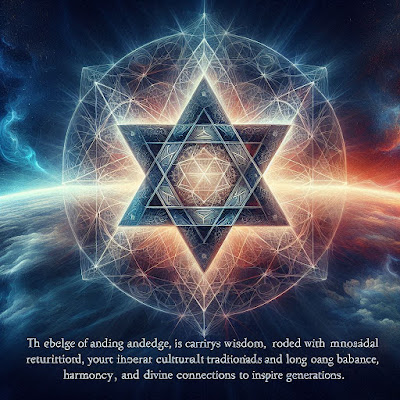Activating the Ni and Ne Functions Through General Islamic Practices
Harnessing Spirituality and Reflection for Cognitive Growth
Introduction
Islam is not just a faith; it’s a deeply structured way of living that nurtures both the soul and the mind. Among its many benefits, Islamic practices can significantly contribute to activating cognitive functions such as Ni (Introverted Intuition) and Ne (Extraverted Intuition). These functions, central to perceiving the world in abstract and conceptual ways, can be cultivated through thoughtful engagement with both individual and communal activities in Islam.
In this post, we’ll explore how practices like journaling, Qur'anic reflection, and group discussions can nurture these intuitive functions, fostering both personal growth and creative expansion.
Activating Ni (Introverted Intuition)
The Ni function is associated with deep introspection, pattern recognition, and the ability to envision future possibilities. In Islam, several practices align naturally with these cognitive traits:
Journaling Reflections on Qur’anic Verses:
Writing about the meanings of specific verses or personal reflections after reciting Surah Yasin or Al-Kahf can encourage deeper connections to life's purpose. This helps focus the mind on underlying patterns and long-term goals, which are hallmarks of Ni.Solitude in Worship (Khalwa):
Spending time in isolated prayer or quiet reflection enhances the introspective quality of Ni. Engaging in dhikr (remembrance of Allah) in these moments strengthens focus and clarity.Structured Visualization During Prayer:
Contemplating Allah’s attributes and connecting them to life experiences can heighten the ability to project meaningful outcomes, a core strength of Ni.
Image Description 1:
A tranquil room with a Muslim woman in a hijab sitting cross-legged on a prayer rug. She’s gazing thoughtfully into a journal, surrounded by soft candlelight and the glow of a small table lamp. Sacred geometry patterns subtly adorn the walls, while the Qur'an and a notebook rest open nearby. The atmosphere exudes deep introspection and spiritual focus, a perfect representation of Ni’s introspective, future-oriented qualities.
Activating Ne (Extraverted Intuition)
The Ne function thrives on exploring possibilities, brainstorming, and connecting diverse ideas. Islamic practices can nurture Ne by encouraging creative engagement and social learning:
Group Tafsir Discussions:
Joining or leading group sessions on Qur'anic interpretation allows for dynamic conversations and exchange of perspectives, key elements of Ne.Creative Expressions in Islamic Art:
Engaging in sacred geometry or calligraphy sessions not only honors Islamic traditions but also opens pathways for innovative thinking. These activities blend structure with creativity, both of which activate Ne.Collaborative Community Events:
Participating in Islamic study circles or organizing charitable projects cultivates outward engagement, sparking new ideas and connections, and energizing the Ne function.
Image Description 2:
A group of individuals, including both men and women, sitting together in a circle on soft cushions, engaged in a lively discussion. One person holds an open book, while others take notes or contribute ideas. A large, airy window lets in natural light, and the walls are decorated with Islamic calligraphy and sacred geometric designs. The environment is warm and dynamic, embodying the brainstorming and connection-driven nature of Ne.
Conclusion
Islamic practices, when approached with intentionality, offer a powerful framework for cognitive and spiritual growth. Whether you are strengthening your Ni through solitary reflection or your Ne through collaborative exploration, these practices can lead to a balanced, enriched mind and soul.
By aligning these activities with your personal development goals, you can foster both introspection and creativity, achieving a harmony that empowers you to thrive in both faith and function.





Comments
Post a Comment